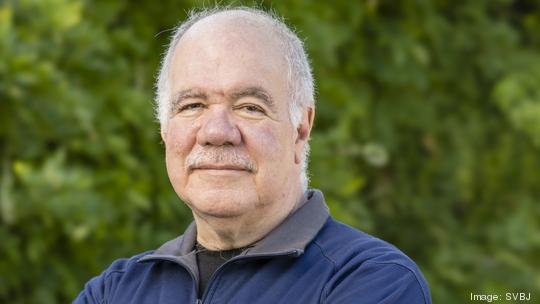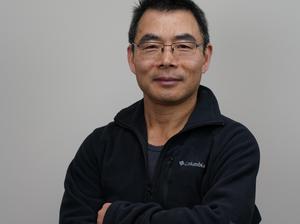
Lots of startup accelerators and incubators focus on companies developing various kinds of software and services.
The folks behind Silicon Catalyst LLC, though, think there's still plenty of room for innovation in a much more foundational technology — semiconductors. Indeed, they'd argue that such development is essential for advances in other technology areas.
And that's why their Santa Clara-based incubator and accelerator is focused solely on helping chip makers and designers — defined broadly — develop their products and companies.
"You can't run software unless you have hardware underneath, and you can't have hardware without semiconductors," said Pete Rodriguez, CEO of Silicon Catalyst. "Even if it's a $3 chip," he continued, you can't ship a $40,000 car without that chip."
Rodriguez would seem to have a pretty good sense of what it takes to get a chip company up and running. He has almost 40 years of experience in the industry, including as an executive at LSI Logic Corp. and NXP Semiconductors N.V. For the last five years, he's helped run Silicon Catalyst, initially as its chief operating officer before becoming its CEO.
Silicon Catalyst stands out from other incubator and accelerator programs for more than just its focus on chip startups. Instead of offering a curriculum that lasts a few months at most, its program lasts at least two years.
During their time in the program, founders take classes where they learn about market strategy, legal concerns, business operations, leadership, building teams, fundraising, technology licensing and product development. Silicon Catalyst promises to help tailor its program to each company's needs and offers advice from its group of advisors and team members.
The incubator also provides participants with free access to a slew of software and services, including chip design software from Synopsys Inc. and cloud computing services from Amazon.com Inc.'s Amazon Web Services. All told, Silicon Catalyst estimates that the value of the software, services and advice it offers startups is around $3 million, said Richard Curtin, a managing partner at the incubator.
Silicon Catalyst set a two-year schedule for its programs, because early-stage semiconductor startups typically need at least that much time to develop into viable businesses, Curtin said.
"The enterprise not only needs to design and build a prototype device ... They also need to manage the supply chain for packaging, test and qualification," he said.
Founded in 2015, Silicon Catalyst has been gradually ramping up its program. Just 10 companies total enrolled in its first two years. Now, though, the total number that have participated has hit 50, with 23 having already graduated. Additionally, it has a joint venture in China that's enrolled another 35 companies there.
This year, Silicon Catalyst's local incubator is on track to enroll 10 to 12 companies and put out the call in July for more startups and founders to apply to its program. Since Silicon Catalyst launched, some 700 startups have applied to participate in its incubator, Curtin said. Unlike other such programs which admit companies in batches, it admits startups on a rolling basis, Curtin said.
One graduate raised a megaround
None of Silicon Catalyst's graduates have gone public yet. A few have been acquired, Curtin said, but he declined to name which ones.
But several companies seem to have been clearly boosted by its program.
Earlier this year, Ayar Labs Inc. raised $130 million in a Series C round. The optical chip designer, which was among the first startups admitted to the incubator's program, has now raised $195 million in total funding and was valued at $452 million after its last round, according to PitchBook Data.
Another Silicon Catalyst participant, SigmaSense LLC, which offers touch sensors for tablets, computers and smartphones, has raised $68 million in venture funding to date. Quadric.io Inc., which has designed a chip for artificial-intelligence applications, has raised $38 million and is valued at $116 million.
"We have some potential unicorns coming that started way back," Curtin said.
Another company that benefited from its participation in Silicon Catalyst's program is Eridan Communications Inc., which has developed a device that helps increase the capacity and efficiently boost the signals of cellular transmitters. The incubator helped Eridan negotiate with suppliers, offered discounts on software tools and introduced the company to some of its most critical early hires, said Amy Lamboley, the startup's vice president of marketing and business development.
When it joined Silicon Catalyst's program in 2018, Mountain View-based Eridan had fewer than 10 employees. Now, after having graduated from the incubator last year, the startup has nearly 30, Lamboley said. It's also raised $102 million, including a $46 million round in May, according to PitchBook.
"Despite the name Silicon Valley, it can be very challenging to be a hardware startup in 2022, when a lot of venture funding has reoriented toward software," she said. "Silicon Catalyst was a wonderful resource for us to connect to a community of mentors and advisors and fellow companies that were going through the same challenges as we were."
Central to Silicon Catalyst's strategy has been adapting to the semiconductor industry's latest trends, Rodriguez said. Among its portfolio companies past and present are ones that are working on chips for high-speed networking, processors and sensors for autonomous vehicles, next-generation memory chips, augmented reality devices, and semiconductors designed to speed the processing of artificial-intelligence models.
Initially, Silicon Catalyst's portfolio companies were mostly focused on designing chips. But in the last few years, the incubator has expanded its services to welcome startups developing microelectromechanical systems, also known as MEMS devices, for life sciences studies and sensors.
Silicon Catalyst's team and advisors now include experts in photonics, intellectual property and new designs, and materials. It also has a partner based in the United Kingdom and two more in Israel that can help find and assist participants in those countries.
Chips are back in the spotlight
As payment for the software and services it provides, Silicon Catalyst gets an equity stake in its incubator participants. The size of its stake depends on the maturity of the companies when they enter its program. For earlier-stage companies, its stake can be as large as 12%. For more developed companies, Silicon Catalyst takes a smaller percent.
The incubator's stake comes in the form of the same common shares held by founders and employees, rather than the preferred shares that give venture investors extra rights.
"We're on the side of the table with the entrepreneur," Curtin said.
Recent developments may give a boost to Silicon Catalyst and its effort to jump-start semiconductor startups.
After years of being in the shadows of the tech industry, semiconductors have been back in the spotlight lately. Supply chain disruptions during the Covid-19 pandemic have led to shortages of numerous chips, delaying production of everything from cars to household appliances to computers.
In an effort to protect against such shortages in the future, Congress passed and President Biden signed the CHIPS Act this summer. The law provides about $38 billion to encourage domestic semiconductor manufacturing, as well as $11 billion for U.S.-based research and development into new semiconductor technologies.
The Biden administration also put together a working group of chip industry leaders to advise it on how to encourage domestic semiconductor research using the funds provided by the law. Rodriguez was a part of that group, which published its recommendations earlier this month and its full report Tuesday.
Among the group's recommendations is that the new National Semiconductor Technology Center in the U.S. Department of Commerce set up a $500 million fund that would be directly invested in early-stage chip startups and incubators that focus on semiconductor companies.








